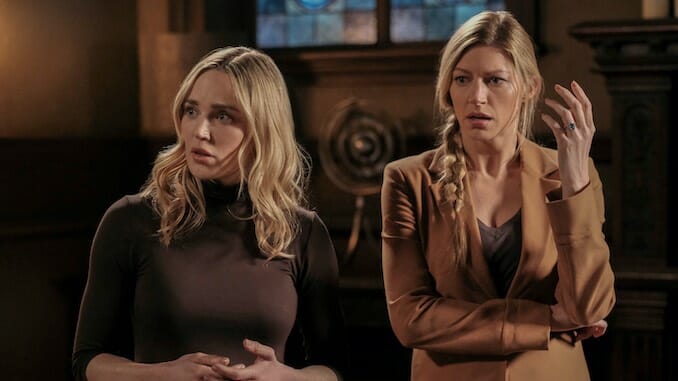Why the Future of Queer Representation Is Uncertain After The CW’s Wave of Cancellations
Photo Courtesy of The CW
Editor’s Note: This article originally published May 24, 2022, but after the recent cancellations of First Kill (Netflix), The Wilds (Prime Video) and others, we’re bringing it back as a reminder that unfortunately this troubling trend is not going away.
![]()
Months ago it was reported that the future of The CW, CBS and WarnerMedia’s joint network known for their long-lasting teen dramas, was shockingly uncertain. CBS and Warner are looking to sell the network to media company Nexstar, while the Warner Bros./Discovery merger also leaves the network on thin ice. The ramifications of that uncertain future have now become clear, as The CW has canceled over half of its scripted slate.
These cancellations are shocking. The CW has been known over the years as a network that, at the very least, would allow its long-running programming to take its final bow. Supergirl was the last show to get a heartfelt goodbye, as it narrowly dodged a Kryptonite bullet with its finale in November of 2021; its Arrowverse sibling shows have since gotten an unceremonious ax. Along with Batwoman and DC’s Legends of Tomorrow, The CW put an end to In the Dark, Roswell: New Mexico, Dynasty, The 4400, Naomi, Legacies, and Charmed.
The unfortunate connection among all these canceled shows is the presence of central queer characters, something The CW has been a trailblazer for in recent years. According to the GLAAD Where We Are on TV report for 2022, The CW has been the leading broadcast network for LGBTQ representation for five successive seasons, with 17% of their series regular characters being queer. Looking ahead to the 2023 report, the future looks bleak.
Each canceled show featured one or more lead queer character; Charmed even most recently added bisexual character Kaela Danso as the third Charmed One, making two out of three leading witches queer. Batwoman was one of the first superhero shows to star a Black lesbian, Legends of Tomorrow was notoriously queer with five series-regular queer characters. Naomi’s titular character was queer, Legacies featured several queer mains, and Roswell: New Mexico featured a pairing of two men—rare for The CW in comparison to their sapphic representation.
Now, the queer representation still standing at The CW is slim, with just one queer lead character in their upcoming lineup. Nancy Drew spin-off Tom Swift stands as the sole LGBTQ-lead show, with Walker, Kung Fu, and Nancy Drew each featuring one series regular LGBTQ character. The remaining Arrowverse shows—The Flash and Superman & Lois—do not feature any queer series regulars. Riverdale is the outlier with four standing queer series regulars, though it was just announced that the series would be ending after its upcoming Season 7, effectively slashing more queer content in 2023.
-

-

-

-

-

-

-

-

-

-

-

-

-

-

-

-

-

-

-

-

-

-

-

-

-

-

-

-

-

-

-

-

-

-

-

-

-

-

-

-








































